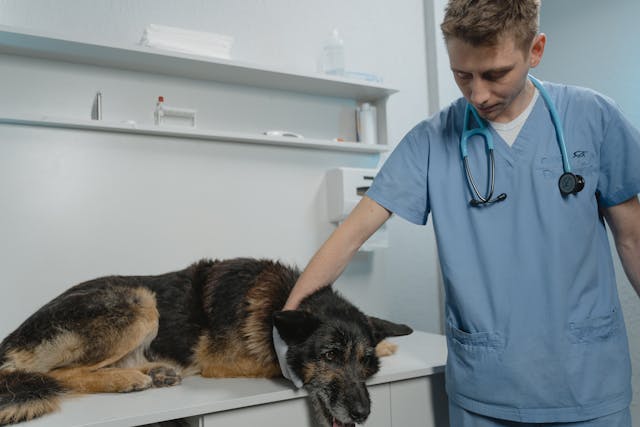Pets bring immense joy and companionship to our lives, making their health and well-being a top priority. Ensuring your pet’s health requires a proactive approach, including regular vet visits, proper nutrition, exercise, and mental stimulation. This article delves into the key aspects of maintaining your pet’s health, helping them lead a long and happy life.
Understanding Your Pet’s Health Needs
Every pet is unique, and their health needs vary based on species, breed, age, and lifestyle. Cats, dogs, rabbits, birds, and exotic pets each have distinct care requirements, and understanding these is crucial for their well-being.
Regular Veterinary Check-Ups
Routine vet visits are essential to detect and prevent potential health issues. Most pets should have an annual check-up, though seniors or pets with chronic conditions may need more frequent visits. Key components of a veterinary exam include:
- Vaccinations to prevent diseases like rabies and distemper.
- Parasite control for fleas, ticks, and worms.
- Dental care to prevent gum disease and tooth decay.
- Blood tests to monitor organ function and detect underlying conditions.
Nutrition: The Foundation of Health
Proper nutrition is vital for your pet’s health. Feeding your pet a balanced diet that meets their specific needs ensures they receive essential nutrients.
Key Nutritional Considerations:
- High-Quality Proteins: Support muscle maintenance and overall growth.
- Essential Fats: Promote healthy skin and coat.
- Vitamins and Minerals: Ensure proper organ function and bone health.
- Hydration: Fresh water should always be available.
Tailoring Diets to Life Stages:
- Puppies and kittens require high-calorie diets for growth.
- Adult pets need maintenance diets to sustain energy levels.
- Senior pets benefit from foods that support joint health and are easy to digest.
Exercise and Physical Activity
Physical activity is essential for pets to maintain a healthy weight, build strong muscles, and prevent boredom. The type and amount of exercise depend on your pet’s breed and energy levels.
Dogs:
- Daily walks, play sessions, and activities like fetch.
- Agility training or hiking for high-energy breeds.
Cats:
- Interactive toys, laser pointers, and climbing trees.
- Encouraging natural behaviors like hunting and stalking.
Small Pets:
- Exercise wheels for rodents.
- Safe spaces for rabbits to hop and explore.
Mental Stimulation and Enrichment
Mental health is as important as physical health. Enrichment activities prevent boredom and reduce stress in pets.
- Puzzle feeders to challenge their minds.
- Social interaction with humans or other pets.
- Safe toys to keep them entertained.
- Training sessions to teach new commands and tricks.
Preventing Common Health Issues
Obesity:
Excess weight can lead to diabetes, joint issues, and heart problems. Prevent obesity by controlling portion sizes, providing exercise, and choosing healthy treats.
Parasites:
Use preventive medications and maintain a clean environment to keep fleas, ticks, and worms at bay.
Dental Disease:
Brush your pet’s teeth regularly and provide dental chews or toys to reduce plaque buildup.
Allergies:
Monitor for signs of allergies, such as excessive scratching or digestive upset, and consult your vet for solutions.
Senior Pet Care
As pets age, they may develop arthritis, vision or hearing loss, and other age-related conditions. Adjust their diet, provide joint supplements, and ensure their environment is safe and comfortable.
Building a Strong Bond with Your Pet
Spending quality time with your pet fosters trust and strengthens your relationship. Activities like grooming, cuddling, and training sessions deepen the bond while monitoring their health closely.
Conclusion
Ensuring your pet’s health is an ongoing commitment that requires attention to their physical and mental needs. By providing proper nutrition, exercise, enrichment, and regular vet care, you can help your furry friend thrive and enjoy a fulfilling life.


